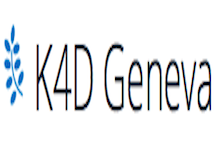Measuring the impact of knowledge management
4 Apr 2017 02:00h
Event report
The third session at the Knowledge for Development: Global Partnership Conference focused on how organisations measure the impact of knowledge management on the system. During the panel presentation, each speaker addressed four main questions:
- Why do we want to measure the impact of knowledge management?
- Are there any recognised approaches to measuring the impact?
- What are the challenges of measuring the impact of knowledge management?
- What are some good practices in measuring the impact of knowledge management?
Ms Sukai Prom-Jackson, inspector for the Joint Inspection Unit (JIU), was the first speaker. She began by enforcing the idea that the concept of knowledge management is loaded, as is its ‘impact’. Governments own impact, while the outcome involves the use of knowledge management in the underdeveloped country itself. Prom-Jackson continued to speak about management for achievement by discussing the concept of integrating lessons learned from past performance on knowledge management decisions. All activities must have an objective because evaluation is systematic and needs to provide justification for improvement/impact of the resources. She concluded by suggesting that there is no universal gold standard: ‘It is not the method that drives the approach, it is knowing what you need to evaluate and how you can do that.’ This involves a social and technical engagement within the parties, specific to the measurement of impact.
Mr Pavel Kraus, President of the Swiss Knowledge Management Forum, spoke about why we measure the impact of knowledge management. His main message was that the measurement of impact is really a question of credibility and delivering on promises. Justifying knowledge management activities allows for continuous improvement and learning.. When discussing the gold standard, Kraus spoke about two different perspectives when viewing knowledge management. The first is the impact knowledge management has on a business processes, including objectives such as: process improvement, increase in productivity, time reduction, and cost savings. The second perspective focuses on the impact of knowledge management activities, including: beneficial propositions, the usage of a knowledge repository, and the percent of activities implemented.
Mr Ulrike Katers, member of the Austrian Court of Audit, offered an external perspective on the importance of measuring the impact of knowledge management. Knowledge management must deliver something to the economy, otherwise there is a question of why the government needs an auditing institution. Katers discussed one of the main challenges encountered in measuring the impact of knowledge management, ‘We live knowledge management every day, so many (co-workers) may not know there is even is a knowledge management strategy.’ As auditors, they must always be ahead of the knowledge curve in their country, as it would be impossible to audit an entity which they do not understand or have previous knowledge of. Peer-to-peer knowledge sharing is the best way for auditors to obtain a high capacity of issues, by bringing people together to share experiences and perspectives. Katers concluded that it is difficult to measure the impact of knowledge management because there are a lot of external factors that also affect performance; therefore there is no golden rule for methodology on how to measure the impact amount.
Prof. Leif Edvinsson, University of Lund, Sweden, and also a part of the New Club of Paris, talked about the concept of societal innovation. Knowledge in the western context is viewed as an ‘object’; therefore, knowledge navigation is more important that knowledge management. Knowledge is a flow, a relationship that needs to be guided. National intellectual capital derived insights of high value, and we need this approach in order to take us into the future. This approach helps prepare for the future of the next generation. Edvinsson also addressed ignorance as one of the main challenges in knowledge management – not knowing what you do not know. Edvinsson then concluded by suggesting that there is a need to integrate much more neuroscience into the subject of knowledge management.
Related topics
Related event

Knowledge for Development: Global Partnership Conference 2017
3 Apr 2017 02:00h - 4 Apr 2017 02:00h
Geneva, Switzerland
